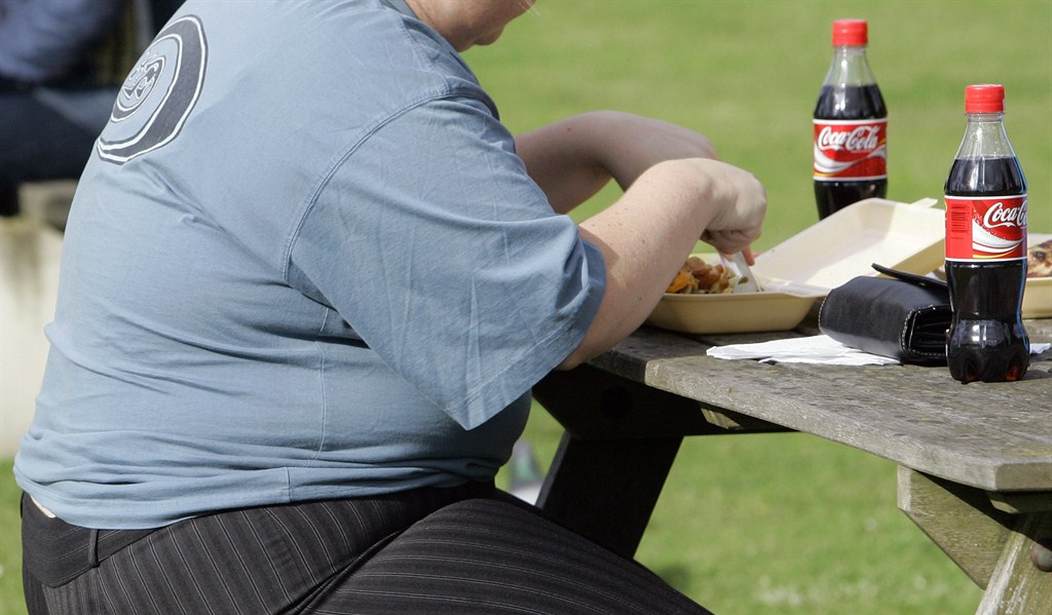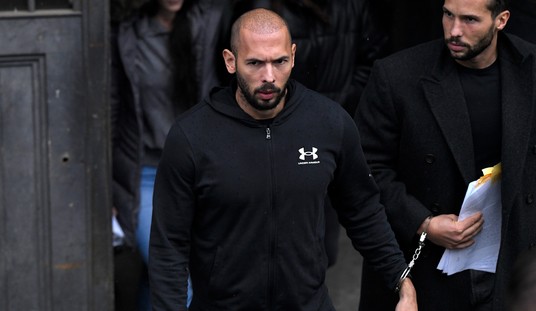John and I are both science fiction fans. I grew up with it, and it’s likely that the older libertarianish authors subconsciously influenced my attitudes. I suspect the same is true of John, although we haven’t discussed it.
Literature does that–it helps shape how you view the world. Maybe that’s why Russians are so dark.
That’s why I was struck by the argument presented in a BuzzFeed article about what modern sci-fi needs more than anything else: really fat Black characters. Characters the size and shape of the Death Star.
Someone pinch me, this cannot be real pic.twitter.com/G7DIcbM6Yg
— Pragmata Americana (@demontage2000) February 27, 2023
Needless to say, that particular fat Black character doesn’t look capable of climbing two flights of stairs, no less getting into a spacesuit and fixing a starship. Capable of anything? I think not.
But perhaps that is my lack of imagination. Probably not, though. Although I do admit that she would benefit from living in a weightless environment; it is likely the only thing that would prevent her from having a heart attack at any moment.
“Fat, Black people deserve to be main characters capable of anything.” https://t.co/wA3yQamI9u
— BuzzFeed News (@BuzzFeedNews) February 25, 2023
I am pretty sure that human beings will be flying to other galaxies before anybody, Black or White, can be that enormously fat and survive for long.
Yet we are now being told that representation for fat Black characters is perhaps the final frontier and that perhaps they can inhabit strange new worlds where they will thrive.
As a young child growing up in Greenville, North Carolina, artist Alex Smith spent a lot of his time engrossed in the world of cartoons and comics, devouring works like Battle of the Planets, X-Men, and Doom Patrol.
In college, Smith first encountered science fiction novels by Octavia E. Butler and Samuel R. Delany, both of whom he admired because “they were Black and absolutely, phenomenally awesome.”
“They both showed me that sci-fi could have literary quality, could be progressive and liberatory,” Smith added. “Just their ideas, world-building, and love of language fascinated me.”
He was hooked. “Sci-fi is kinda like my church,” said Smith, who is now age 47 and living in Philadelphia. “It’s spiritual and very much connected to who I am as a Black, queer person.” The problem with his church, however, is that there isn’t very much Black (or queer) representation.
Mainstream sci-fi features Black characters like Morpheus from The Matrix, Mace Windu from Star Wars, and Lt. Commander La Forge and Nyota Uhura from Star Trek. But in general, Black characters aren’t afforded the same prominence and screentime as their white counterparts. And when Black people are present, they tend to be cishet assumed and conventionally attractive. Fat, Black bodies are a rarity.
The celebration of fatness is apparently vital to the alphabet movement. This is, I believe, based upon the ideological assertion that self-image is the only reality. We live entirely in our heads.
I am not certain whether this is an embrace or a rejection of the Cartesian duality of mind and body. On the one hand, reality is determined entirely within the mind; on the other, the body must be modified to match that reality at all costs.
“It just astonishes me that fat people in general are treated and depicted as second-class citizens in science fiction works, or they’re made to represent something like greed, lust, or villainy,” Smith said, pointing to the character of Baron Vladimir Harkonnen in Dune.undefinedundefined“I used to do a queer sci-fi reading series called Laser Life,” he added, “and when I was on the hunt for guest readers, the very first story I received depicted a villain who was fat. The character’s fatness was described in loathsome terms and was considered an obvious indicator of their villainy. It’s really disappointing.”
So when easily accessible AI art generators came along last year, Smith, already an established visual artist, adopted these tools to create several Black, fat, and queer characters from a more inclusive futuristic world. Among them was Marcus, whom Smith brought to life using Midjourney and D-ID, an AI platform that creates talking avatars. Marcus heads up a division of the Electric Afro Science Institute, which Smith called “a superhero-led independent afrofuturist organization that works in biomechanics, cosmic engineering, nanotechnology, medical alchemy.”
It doesn’t astonish me that fat people are not celebrated in literature. It’s basic human nature. Our minds tend to reject as good things that are in fact not good for us.
It’s a fundamental falsehood that we can simultaneously be super obese and do what fit people can do. Black or White, fat bodies are unhealthy bodies and not to be celebrated.
Surely it is true that bullying people for being obese is cruel; just as certainly lying to people that they can be “healthy at any size” is at least as cruel. Any person who looks like that AI-generated art above will die young, never having been able to achieve their God-given potential.
The current fad for indulging delusions claims to be based upon compassion and acceptance. It isn’t.
The people being indulged are harming themselves grievously, and the people indulging or profiting off their delusions are far crueler than any bully who makes fun of the victims.
Trans children are being mutilated; obese people will and are dying young. People being taught CRT are being deprived of a fuller and more complicated understanding of the world.
Living a full life requires living in the truth.







Join the conversation as a VIP Member